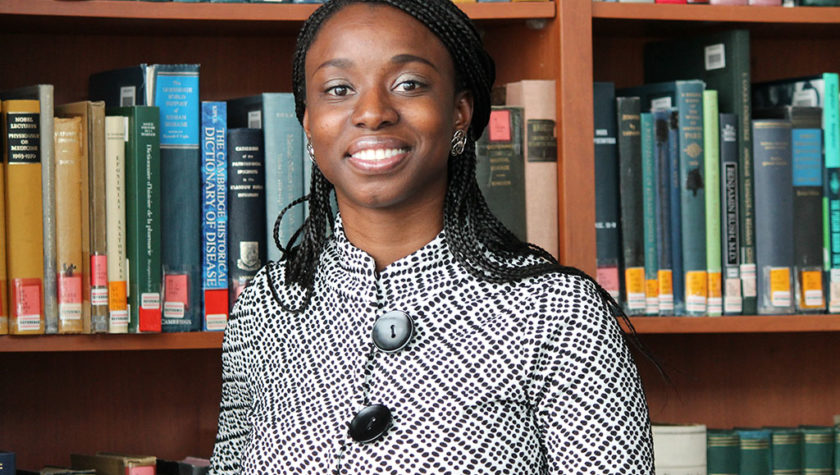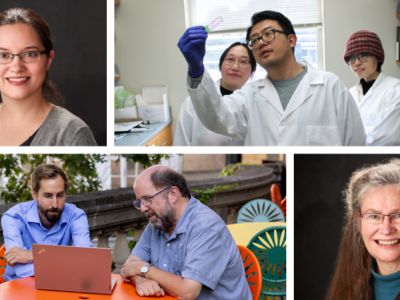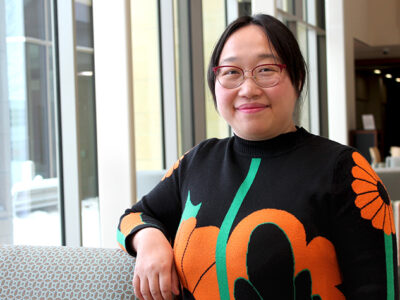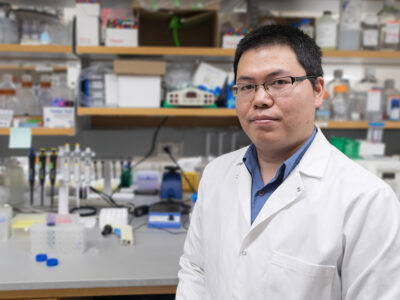
24
February

This article originally appeared on UW Health’s news page.
Learning about cancer prevention often involves talking about the modifiable behaviors that can influence the risk for developing certain types of cancers. But, a key demographic group often left out of this discussion is teenagers.
New UW Carbone Cancer Center faculty member Olufunmilola Abraham, PhD, MS, BPharm, an assistant professor with the UW School of Pharmacy, has recently been awarded a grant funded by the Carbone Cancer Center and the American Cancer Society to study youth perceptions of cancer and develop a game-based approach that could be used in classrooms to teach teens about cancer prevention.
“I’m very passionate about community-engaged research,” Abraham said. “With the people that we’re partnering with, it’s more important to ask them what questions they have, and then letting that drive what we actually study and how we intervene.”
This research will build on partnerships with several rural and urban Wisconsin schools that have students from diverse socioeconomic and racial backgrounds. So far Abraham’s outreach to school principals and nurses in the area has been met with excitement.
“Even just starting this study has been a lot of validation that there’s a lot of need in the community and that we should be trying to figure out how can we start helping with supporting schools and providing this education as part of their curriculum,” she said.
Based on her previous research on over-the-counter and prescription medication safety, Abraham realized that doing a better job of involving young people in these conversations could help them grow up with good health habits from an early age. Now, Abraham hopes that this pilot study will help teens make the connection between healthy behaviors that might already be learning about in their classes and preventing some cancers.
“There are so many cancers we could talk about, but to me, the important question is finding ways to connect with them,” she said. “What I find working with teens is we’re so used to going in with our list of topics.”
Abraham argues that teens tune out when they are not engaged in a way that is meaningful to them or given any motivation to seek out more information. Rather than lecture them on concepts and health recommendations they should know, Abraham’s group will start by asking teens what they already know about cancer and what they would like to know more about through surveys. They will then follow-up with small focus groups asking the students how they would design a game to teach about cancer prevention, incorporating some of these elements into their game design.
“It’s more important to ask them what questions they have, and then letting that drive what we actually study and how we intervene.”
– Dr. Olufunmilola Abraham on bringing teens into the discussion about cancer education.
“For me, what’s most important is that the intervention we’re designing addresses their knowledge gaps and is able to help clarify some questions they have,” Abraham said.
By taking a hybrid approach that combines the researchers’ expertise on cancer prevention and game development with the teens’ experiences as game players, Abraham hopes to bring more creativity to the game design process. From her experience working with teens to design games that teach about over-the-counter medication safety and prescription opioid use, Abraham knows that the choices teens make about gameplay mechanics, language and content are always surprising and finding a game inclusive of many different gaming personalities is part of the challenge.
This strategy for engaging with teens also shows them that the adults in their lives – whether they are educators or researchers – value their opinions and want to learn from them, Abraham adds.
“I think this approach lets teens realize that they’re very important in the conversation because they’re the ones that have to manage their health with their parents,” she said.




